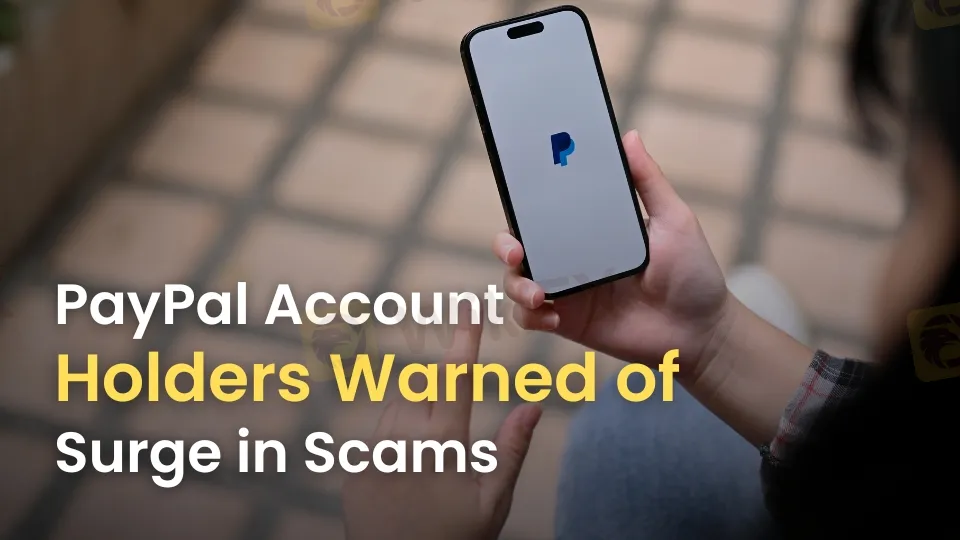简体中文
繁體中文
English
Pусский
日本語
ภาษาไทย
Tiếng Việt
Bahasa Indonesia
Español
हिन्दी
Filippiiniläinen
Français
Deutsch
Português
Türkçe
한국어
العربية
PayPal Account Holders Warned of Surge in Scams
Abstract:Experts warn of increased PayPal scams, including fake emails and gift cards. Stay alert to protect your account from cybercriminals.

Cybersecurity specialists have sent out an urgent alert to everyone using PayPal, pointing out a sharp increase in attacks aimed at this widely used payment service. According to McAfee Labs, scams linked to PayPal have jumped by 600% since the year began. These tricks mostly come in the form of fake emails that say your account is blocked and push you to update your information to unlock it.
Besides these sneaky emails, other traps include made-up gift card deals from PayPal, bogus bills, and scams pretending to be customer support for payment problems. These schemes are getting smarter and often target big names like PayPal, which gets a lot of attention because so many people use it.
Experts from McAfee explain: “PayPal is doing its best to keep users safe, but crooks keep finding new ways to attack, especially focusing on popular companies that people hear about a lot.”
This wave of scams comes from a carefully planned effort where attackers send emails that look real, with urgent subject lines like “Action Required.” These messages scare users into updating their details fast—within 48 hours—or they might lose their account.
To keep your PayPal account safe, McAfee suggests being careful with emails claiming to be from PayPal. Watch out for links that take you to strange websites instead of PayPals official page. For added protection, McAfee also advises checking out a simple list of safety tips for PayPal users, helping you stay ahead of these online thieves.

Disclaimer:
The views in this article only represent the author's personal views, and do not constitute investment advice on this platform. This platform does not guarantee the accuracy, completeness and timeliness of the information in the article, and will not be liable for any loss caused by the use of or reliance on the information in the article.
Read more

What Happens If You Trade on Illegal Forex Platforms in India?
There are many illegal platforms that offer financial services to clients. These scammers hide the risks involved because their main goal is to steal your money. That’s why it’s so important to understand the dangers of trading on illegal forex platforms

Exposing Trade Capital Limited - Siphoning Millions, Restricting Withdrawals, Charging Extra Fees
Trade Capital Limited is in the news for conducting bad practices as a forex broker. Check out the unethical practices employed by it to scam investors in this article.

US Federal Reserve May Cut Interest Rates in September, Says Goldman Sachs
US Federal Reserve Chair Jerome Powell may slash the policy rate in September 2025, according to research economists at Goldman Sachs. Read this to learn more.

5 Serious Warnings About Mirrox! You Can’t Afford to Ignore
Pay Attention! This is a serious warning you shouldn't ignore. Check out this article and know the 5 red flags about the Mirrox that every trader must be aware of.
WikiFX Broker
Latest News
America's Deficit Reckoning: How the U.S. debt spiral could spark a crisis
Treasury yields hold steady as Trump extends tariff deadline
Gold Prices to Fluctuate This Week Amid July 9 Tariff Deadline, Fed Policy
FCA clarifies expectations on bullying, harassment and violence to deepen trust in financial service
XS.com Expands Global Reach with Landmark Kuwait Launch
10 Unlicensed Brokers Exposed – Check Now to Stay Safe!
Exposed: Ibell Markets - A Scam Broker That Does Not Allow Withdrawals
Asia-Pacific markets mostly rise as investors assess Trump's steep tariffs
MT4 vs MT5: A comprehensive comparison in terms of functionality
Top Forex Trading Strategies for the London Session
Currency Calculator


